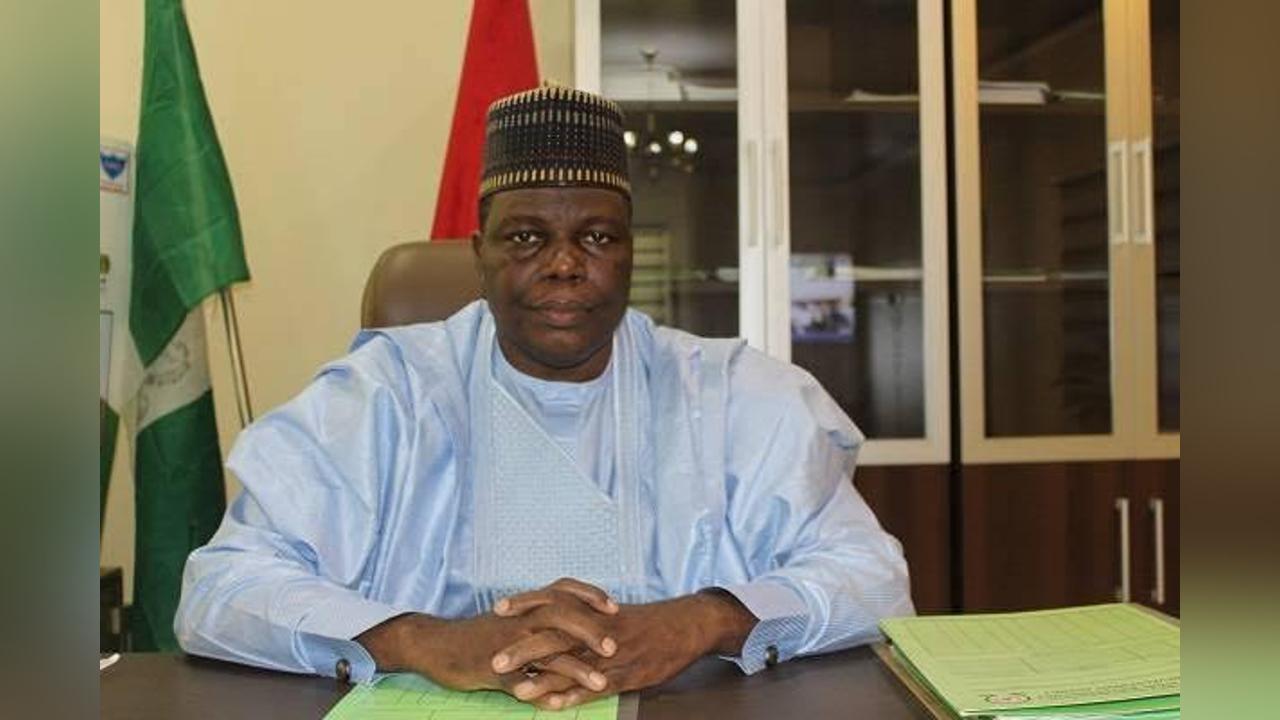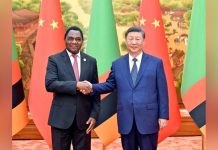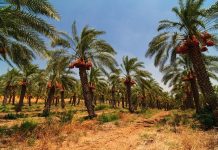
By – Abba Hamisu Sani
Africa-Press – Nigeria. Professor Abdullahi Mustapha is the Director General Nigerian Biotechnology Research and Development Agency ,one the Parastatals under the Federal Ministry of Innovation Science and Technology.In this Interview with Africa Press ,he digested the imperative of biotechnology towards the economic prosperity of Nigeria and other African countries.
The Excerpt:
Africa Press – Let us start with a little history of this agency before going deep into the services and it’s activities ?
NABDA Director General Professor Abdullahi Mustapha – The Biotechnology Research and Development Agency came into being in 2001 when the Federal Government saw the need that it is imperative to have an agency solidly to focus on research activities on biotechnology. And for those of us who are in the science sector, we know what biotechnology means because it’s like you are delving your hand into every sector of the economy to see how you can approach it using science. So biotechnology is the key to social and economic development.
When it was formed in 2001, it started in Abuja. And then at the end of the day, in 2022, the former president of the Federal Republic of Nigeria Muhammadu Buhari has signed the act to establish the agency as a research agency. In the beginning, it was like a promotional agency for biotechnology. Now we have transformed to a research agency status. And we have 38 centers across the nation and then we have six centers of excellence where we collaborate with premier universities in the country for research activity. We are developing all this to make sure that we harness the natural resources around the country and then add value to each and also use those natural resources to conduct research to see how we can move the country forward economically.
The Agency has technical departments, and the departments we have are agro-biotechnology department where we do all agro-activities enhancing crops, improving the livestock and fishes and also we have medical biotechnology where we apply the biotechnology research activity to improving medical course in the country for the development of vaccine, for the development of drugs and the improvement of health across the nation by eradicating all those factors that will bring sickness in the country. We have environmental biotechnology that conducts research to keep the environment safe, to improve the living around the environment, and to make sure that we have gone along with the climate resilient activity where we intend to follow all the United Nations regulations in terms of keeping our planet safe. We have things like cleaning the environment where there is pollution and also we have researches like cleaner energy, we have research strategies to make sure that we have harnessed the natural microorganisms and utilize them very well. And industrial biotechnology is utilizing the natural resources to improve on the processes and the product of the industries and to make sure that we utilize them very well. And industrial biotechnology is utilizing the natural resources to improve on the processes and that of the industries and to make sure that we utilize it to improve genomics and bioinformatics where we now use the tools towards the development of all those sectors that I have mentioned. And this is the biotechnology that I’m talking about, using all those sectors.
Africa Press – Professor Mustafa, for the benefit of those that are not in the science sector, as you said, what does biotechnology mean?
Director General NABDA – Well, bio is life, technology is the skills to put life into using it as technology, so to improve life using the technology. So you talk about the agricultural sector, pharmaceutical sector.
Africa Press – Generally now in which sector this agency is making Nigeria a different country?
Professor Mustapha – Well, to be honest with you, in all the sectors, you know, we have started research since 2016. That’s when we started to receive a research grant and fully recognized it in 2022.
What I can say is that we have collaboration with so many agencies within and outside the country and with that in the agricultural sector we have collaborated with African Agricultural Technology Foundation and that is outside the country and we are also
collaborating with them, and then we are collaborating with the Institute of Agriculture, and some other institutions. We have developed cowpea, where we have the cowpea that is released to Malta, which is an insect that is devastating the crop, making it not really producing the quality grains that is needed, and then the quantity of the grains keep reducing because of the insect attack and that has been given to farmers and I always say that I’m proud to be a part of that project because the cowpea now has changed the narrative in the country.
Years before the release of the BT cowpea Nigeria was running out and scattered to Philly in the deficit that was in the country because we rely on Ghana and Chad Republic for the importation of this cowpea to fill in the deficit. Just like what is happening in terms of maize where we are struggling to fill in the deficit. Cowpea is a protein almost needed in every household. With the release of BT cowpea, there is no deficit. We are even exporting it to other countries, those countries that used to give us. But now, Nigeria is sufficient in terms of production. Now, this is an achievement.
And then, let’s come to the cotton. We collaborated with some companies to bring in the cotton. In that aspect, we have collaborated with them because we are promoters of biotechnology and this is the GMO cotton that has a quality better than what we have here in the country. I think two years ago, the Cotton Farmers Association invested 6,000 hectares, and it was a success, honestly speaking, trying to revive the cotton engineering industry in the country. And now, as it is, we are hoping that what we submit is going to produce a quality seed because we have submitted it to them. We want to engage farmers in terms of producing more and more cotton so that we can export it and revive our own cotton industry. And you know what it means to the country.
We are almost reliant 100% in importing all our clothes. But with this pattern of revolutionary activity, we are expected to be self-reliant and we are expected to provide more jobs for the youths.And Nigeria will be a large exporter of cotton because we are going to produce large quantity of it,
because of its high demand all over the world. And we have a good belt that produces this cotton in large quantities and in a beautiful environment. And now, what we have submitted is a proposal so that government can adopt this technology,
this recent cotton development. has high fiber, (90%).The tensile strength is very high, with a lot of qualities, So that is what is needed across the globe. And hopefully this year, we will swing into action, because I have just talked with the Director General of Budget and he promised that it is going to work, because this is the mission of this government. As giants of Africa ,we’re supposed to be producing all those things and then even helping our neighboring countries by giving them a cheaper and quality product that we produce in the country.
So that is one. Another one is the area of maize. I just talked about it ,even last year we had that. This year we have to import the deficit that we have because it is high demand. So when we look at that, we see that there are some diseases that are really affecting the production and the growth and the processes of the production of the maize.
So this project was launched in collaboration with the IITA and some other agencies. And this year, the Minister of Innovation, Science and Technology launched the Tele maize. And the Tele maize now is a success story because this year the farmers were really looking for the seed desperately ,because they know the advantage and we can only give them what we have, but we promise that next year it is going to be in large quantity because they know the advantage the yield is really high when you look at it normally the yield of per hectare of the normal or the traditional seed that we have is two to three tons per hectare but these it can be up to three tons per hectare is part of GMO ,yes of course genetically modified organism is something that people need to understand what it is And are not going to go into that because that is not what you have asked me.
And we are working in several sectors but you just asked what we are doing. I have quite a lot to tell you in all the sectors as an achievement.
And still in the agricultural sector, we are working on soya beans. Soya beans is very important crop in the country, we are now in high demand of soybeans. So, herbicide-tolerant soybeans are what we are using now. We are introducing the herbicide-tolerant soybeans with Michigan State University that we have collaborated to conduct research and we a
are introducing a very good breed of these soybeans and then we are hoping that in the next three to five years we are going to give the farmers this very important and promising crop.
In the area of agriculture, we have research that we are working on the improvement of milk and meat using our own local cattle breed. This is a very important national project.
Thank God, the president of the Federal Republic of Nigeria has established a sole ministry for livestock. This is a very important achievement, we have started, now NABDA is part of those activities that will be taking place in the Ministry of Livestock and Development in Nigeria.
Africa Press – Let’s talk about the GMO. It’s very important because there is so much misconception among farmers, even among the members of the AFAN – All Farmers Association of Nigeria. So what does this GMO mean and how does it work?
Professor Abdullahi Mustapha – Well, let me debunk your claim because the All Farmers Association of Nigeria, we have a very good understanding president Architect Kabiru is a very wonderful man. You can go and interview him. He knows the in and out of this.He has gone to the laboratories with our researchers to investigate and then he is with us 100%, because he knows what is going on. You know anybody can wake up in the night and say, I don’t believe in that.
Africa Press – So what’s the importance of this GMO ?
D.G NABDA – Well, what’s the importance of vaccinating everybody when you take a vaccination ? You see, the issue is that you don’t just jump into something and then start concluding in your head. When the COVID-19 came, people were insinuating that COVID-19 is a disaster, is dangerous, when you take the jab, you are going to grow horns, are going to turn into this, you are going to turn into that. I took it. I don’t know. change anything. So it’s just that kind of imagination. So a GMO, genetically modified organism, instead of you, this is happening, genetically modification is happening all across the globe. Go ahead, sir. Millions of years ago, genetic modification was happening, but at its own pace. at its own pace. But now it is happening in the laboratory to shorten the time. If it will take 100, 200 years, you can have it in 10, 20 years.
That is beautiful. So a genetically modified organism is a situation whereby you have something that is either a crop or human or life or whatever. And then you go into the genetic strain of that particular organism and then you take it and then you study which part of the gene is responsible for so, so, so activity that you wanted to mend or you wanted to add value or you wanted to improve the cause of diseases. Then you go there, you mend it and then or you introduce a gene of therapy from another organism and then it will enter there and do the work that you wanted it to do. Under normal circumstances, when you leave it, naturally it will happen. Naturally, because that gene will be in progress, but it will take 100, 200, 300 years. Now the whole population is born into a large number, over 2 billion people. Is it 2 billion? I can’t remember. But the large population, when we take the population of, for example, Nigeria, we were 70 million some years back, but now we are over 200 million people. So are you saying with this large number of population and high demand are going to wait for 100, 200 years? As COVID came in, are we going to wait for 100, 200 years before we get the cure? No. We use the available tools to make sure that we draw that success closer and make it available. If it was that 100, 200 years, people are not going to be disturbed because they just found it naturally. The people that knew about it probably may have and then the people that have just woke up and found it, they don’t even know what happened previously. That is 100, 200 years ago.
But now, because using laboratories, those people that know the problem, they see the solution immediately, and they start doubting, why the solution now? So this is what is happening, genetic modification is a scientific way of bringing the progress closer and faster. And this is what is happening. So that is the genetic modification of an organism. And mind you, what is happening is that the moment you start that project, because it involves life, there is a regulation that has been set across the globe. And we have a regulatory agency here in the country. which is the National Biosafety Management Agency to make sure that all these researchers follow certain protocols and in each and every state these protocols are abided by and the Biosafety Management Agency comes to inspect to make sure all those safety protocols have been applied. If that is the case, which means the safety is applied and there is no cause for alarm. Because it’s something that needs to happen years, and then it is happening in the laboratory within the possible time. that is what is happening in the genicule, and that is why the people are curious about what is happening. So now Professor Mustafa is telling Nigerians and other Africans that GMO is safe, so we can go, and even farmers can go for it, to achieve food security, not only in Africa. Those people that go to the U.S., I am sure they wanted to eat McDonald’s, they wanted to eat KFC and all this oil, but this thing is being fried, is fried from genetically modified soybean. Yes. Again, they are happy to eat complex and other cereals. This thing is made from corn that is grown, this is telomiz, this is tiago. It’s made from that. And you go and buy from America, you buy from Ethiopia, and then you’re happy. It’s from that. And the biscuits?
Of course. So this is what is happening. So let’s people be aware of what is happening. They have been eating it and nothing happened. So, nothing is going to happen.
Africa Press – Professor Mustafa, thank you very much for the enlightenment. Let’s talk about ginger. It’s one of the products that is bringing Nigeria foreign earnings. But recently, there are so many problems faced by the ginger farmers. What is your institution doing to at least elevate or help farmers to get out of this problem? Well, we have started, honestly. But what we learned is that the Prime Minister of Agriculture, in the and the state government have taken action and they have engaged some other scientists.
We are doing it at our own pace to identify the microorganism and to provide solutions, but they are also doing their own. So we are of course, you know, when you identify, then you find a solution, not just identify the microorganism that is affecting the ginger farm, but you have to provide solutions. So that is what we are doing. So state governments are the ones responsible for at least helping the farmers in their different states. Do you collaborate with the state government? In which part do you collaborate with the state governments? You know we are researchers. We are not really like agrarians. We research the activity and then we give a solution to that. We research diseases and some problems and then we give the solution to that. Of course we have research side collaboration with some state governments. I in touch with the Commissioner of Agriculture then and we kept on talking with aim to provide permanent solutions to the states affected
Africa Press – What plan do you have in place for 2025?
Professs Well, what we want to see is that ,we want to establish an epithelial laboratory where we can isolate the gene of interest and intubate the gene of interest into the crop or into the actual animal that we want it to be. This is our mission. We also want to train people more in this area. That is what we are working hard to see that we can do.
Africa Press – In which aspect did NABDA collaborate with the Nigerian universities?
Professor Abdullahi – Well, I told you in the beginning that we have six centers of excellence in premier universities. I’ll give you some examples. University of Port Harcourt, Nsukka, Ibadan, JOS, these are the premier universities we are also collaborating with individual universities, like presently we have signed an MOU with the University of Abuja and some other universities. We are collaborating with them because they are the hub of biotechnology. And our mission is to see that we collect all these research activities of researchers in the universities so that we don’t leave them on the shelf.
They produce those researches. We work hand in hand with them to make sure we delivered them as a product to Nigeria so that Nigerians will benefit from the research that is ongoing in the area of biotechnology.
Africa Press- Professor Professor Abdullahi Mustapha You have mentioned about the relationship you have with different international organizations. Do you intend to have more collaborators?
DG NABDA – Our doors are always open. Few days ago, some people from the United States came. We were talking about the issue of this bleaching of a thing that is very rampant in the country to see how we can utilize the natural resources that are not going to be harmful to our women’s skin. So they came in here and we talked with them. And have already signed an MOU with them. as we see the Honourable Minister of Innovation, Science and Technology have assigned the responsibility to some agencies.
We also signed another MoU with a different Organization on food with FLOGS and that is an international organization and we’re working to see that we have provided the food security that Nigeria is needing at the moment.We are at the same time making a move to solve the problem of fertilizer in Nigeria. Fertilizer is critical, when you talk to the farmer, fertilizer is an issue, so we’re using other droughts. We have the collaboration with them to change the narrative, the soil degradation, and the soil erosion.
And when you apply this weather drought, it is going to change the narrative and then the farmer is not going to even bother himself about the issue. fertilizer, this chemical fertilizer.
So we are working on that, and very soon we are going to come up with a solution to the fertilizer issue in the country.
Africa Press- Organic fertilizer?
Yes. It is cheaper, easy to use, easy to handle, with a high yield of at least 40% per hectare.
Africa Press Nigeria has many industries, and your agency is conducting research. How does that research help these industries?
Professor Mustapha – Yes, I gave you an example of beans, and maize. Any industry that is interested in that, I’ve given you an example of improvement of milk, any industry interested can come for it.
For More News And Analysis About Nigeria Follow Africa-Press






